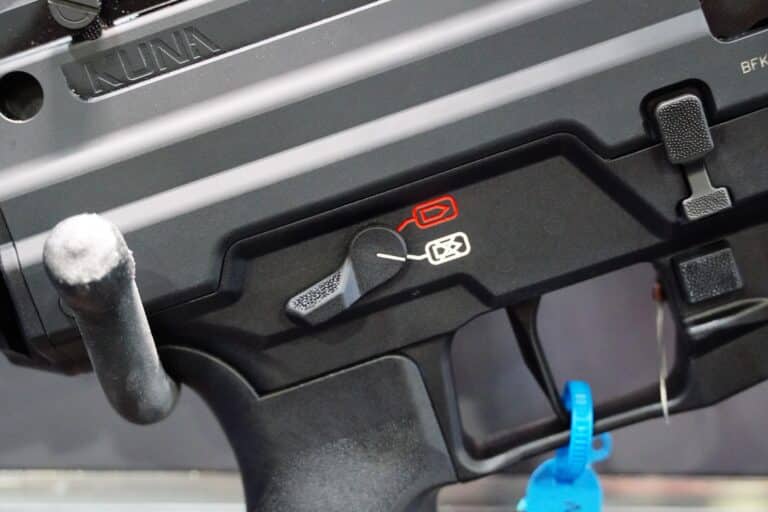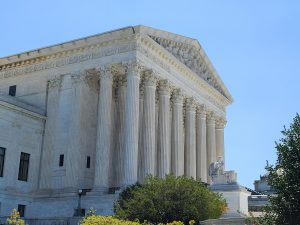The government can permanently disarm non-violent felons despite the Second Amendment, a federal appeals court has ruled.
On Friday, an en banc panel for the Ninth Circuit Court of Appeals affirmed defendant Steven Duarte’s conviction of being a felon in possession of a firearm. The panel claimed that both Supreme Court dicta and the country’s historical tradition of weapons regulation support the “permanent and categorical disarmament” of all convicted felons.
“Today, we align ourselves with the Fourth, Eighth, Tenth and Eleventh Circuits and hold that § 922(g)(1) is not unconstitutional as applied to non-violent felons like Steven Duarte,” Judge Kim McLane Wardlaw wrote for the majority in US v. Duarte.
The panel’s decision deepens the circuit split over the constitutionality of the most commonly enforced federal gun law. It adds to the growing body of legal decisions that could soon find their way before the Supreme Court, which has yet to decide exactly when the government can permanently disarm Americans.
The Ninth Circuit case stems from Duarte’s 2021 conviction for being a felon in possession of a firearm. He was caught at the time throwing a handgun out of a car window during a traffic stop and had a series of previous convictions for offenses ranging from vandalism and drug possession to evading police. He challenged his latest conviction under the Second Amendment, arguing that the federal lifetime gun ban for felons should not apply to those with only non-violent convictions.
In May of last year, a three-judge panel for the Ninth Circuit agreed with Duarte and ruled the federal ban unconstitutional as applied to him.
“Duarte is an American citizen, and thus one of ‘the people’ whom the Second Amendment protects,” Judge Carlos Bea wrote at the time. “The Second Amendment’s plain text and historically understood meaning therefore presumptively guarantee his individual right to possess a firearm for self-defense. The Government failed to rebut that presumption by demonstrating that permanently depriving Duarte of this fundamental right is otherwise consistent with our Nation’s history.”
However, the Ninth Circuit later vacated that decision when it decided to rehear the case en banc. The move drew major attention at the time from gun-rights groups like the National Rifle Association and Firearms Policy Coalition, as well as progressive groups like the ACLU, which filed legal briefs in support of Duarte’s claims.
Reviewing the case a second time, the en banc panel first cited statements made and repeated by the Supreme Court in its Heller, Bruen, and Rahimi decisions, clarifying that those rulings did not necessarily cast doubt on laws prohibiting felons from accessing firearms.
“Together, these repeated and consistent ‘assurances’ make clear that felon-in-possession laws, like § 922(g)(1), are presumptively constitutional, demonstrating that our holding in Vongxay remains consistent with the Supreme Court’s articulation of Second Amendment rights,” Wardlaw wrote. “Further, these ‘assurances’ recognize a historical tradition of firearm regulation that supports the categorical application of § 922(g)(1) to felons like Duarte.”
The panel acknowledged that Duarte is part of “the people” protected by the Second Amendment but said that the government had shown that his disarmament is consistent with how legislatures handled dangerous lawbreakers around the time of The Founding.
“To support the application of § 922(g)(1) to Duarte, the Government proffers a variety of historical sources that evince two regulatory principles that: (1) legislatures may disarm those who have committed the most serious crimes; and (2) legislatures may categorically disarm those they deem dangerous, without an individualized determination of dangerousness,” Wardlaw wrote. “We address each in turn, and agree that either supplies a basis for the categorical application of § 922(g)(1) to felons.”
Judge Lawrence VanDyke, who voted with the majority on the three-judge panel that struck down the ban as applied to Duarte last May, wrote separately to both concur and dissent in part from Friday’s decision. He accused the majority of making “a cavalcade of errors.”
He agreed the court should reject Duarte’s challenge, but only narrowly under a “plain error review” of the lower court’s decision upholding his disarmament.
“There was no plain error by the district court. Given the split among the circuit courts over the constitutionality of § 922(g)(1) as applied to felons convicted of non-violent offenses, and our pre-Bruen precedent upholding the constitutionality of the statute, I cannot say that the district court’s error was ‘clear’ and ‘obvious,'” VanDyke wrote. “Our sister circuits have reached the same conclusion, finding no plain error when presented with similar challenges to § 922(g)(1) after Bruen.”
However, he went on to chastise the majority for its analysis of Duarte’s claims on their Second Amendment merits.
“The majority concludes that our court’s pre-Bruen precedent upholding § 922(g)(1) against Second Amendment challenges is not inconsistent with intervening Supreme Court authority,” VanDyke wrote. “But given the paradigm change in Second Amendment jurisprudence that Bruen effected, the majority’s conclusion is incorrect.”
He added that the majority’s reasoning gives governments “unilateral discretion to disarm anyone” by designating any conduct a felony without any individual showing of dangerousness or risk of violence.
“Once again we demonstrate our court’s deep-seated prejudice against a fundamental constitutional right, and I must respectfully dissent,” he concluded.
The ruling sets up a potential showdown over the issue of non-violent felon gun rights at the Supreme Court, which the Department of Justice has sought to avoid in recent weeks. However, with Duarte’s loss in the lower court, the decision to appeal to the High Court will be up to him rather than the government.






